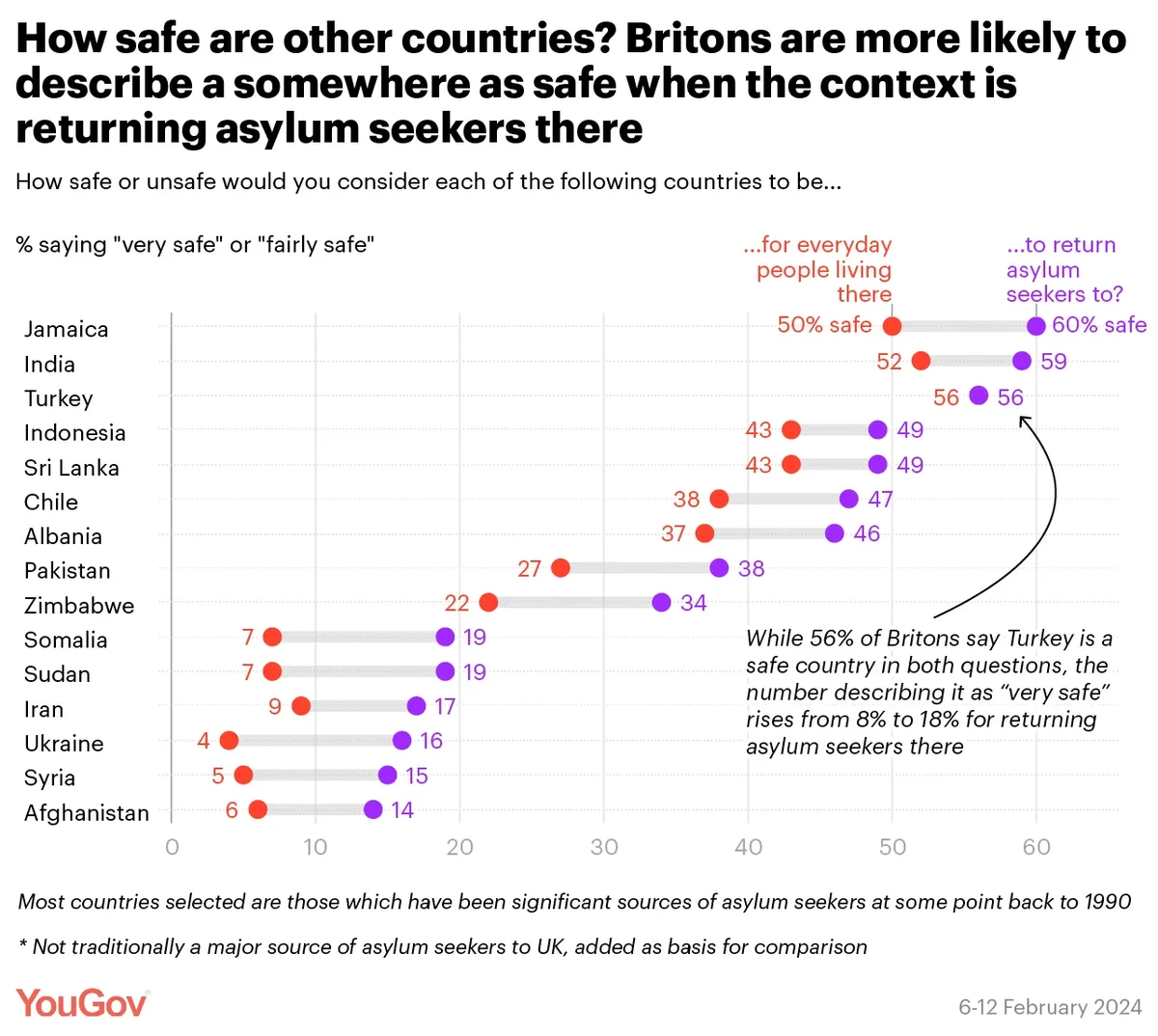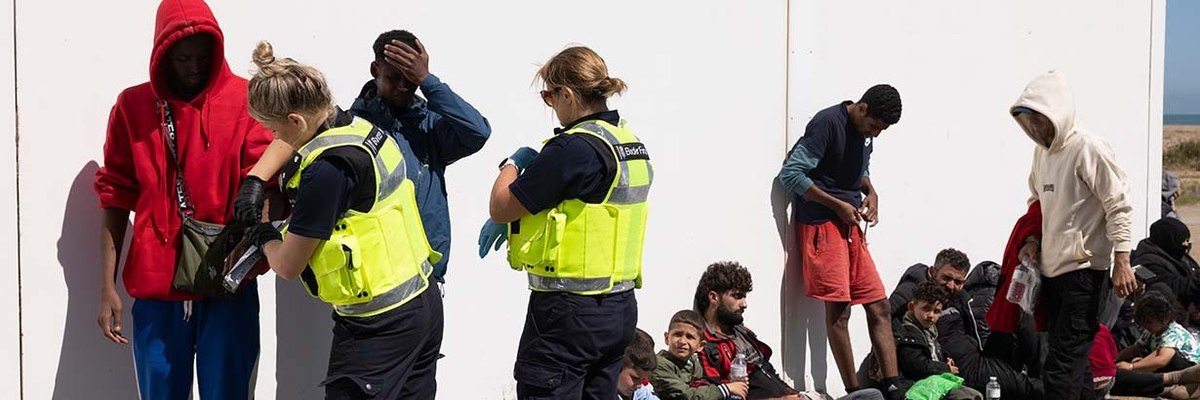Conservative and Leave voters become more likely to see any given country as safe when asked in the context of sending asylum seekers back there
Earlier in the month a key strand of Rishi Sunak’s small boats strategy fell through after the Home Office declared that Turkey is not a safe country to return migrants to, citing human rights concerns.
A new YouGov survey now shows that the public disagrees, with 56% of Britons considering Turkey a safe place to return asylum seekers to, compared to only 22% who disagree.
This makes Turkey one of the safest countries we asked about – YouGov compiled a list of countries that have been top sources of asylum seekers coming to the UK at some point between 1990 and today1, as well as additional countries to form a basis for comparison (in this case Jamaica, India, Indonesia, and Chile).
About as many Britons see Turkey as being safe as they do Jamaica and India – although slightly more people describe Turkey as being unsafe.
Countries like Afghanistan, Syria, Ukraine, Iran, Somalia and Sudan all feature at the bottom of the list, with only 14-19% considering them safe places to return asylum seekers to.
Many countries suddenly become safer when you ask in the context of sending asylum seekers back
However, it appears that many people might be adjusting their perceptions of safety based on a desire to reduce migrant numbers.
To test the impact that attitudes towards immigration might be having on the way people answered, we experimented with three different variations of the question.
Respondents were shown one of the three question formats at random: one asking how safe each country was for people living there; one asking how safe each country was to return asylum seekers to; and one asking how safe each country is to go on holiday to. (For the purposes of this article, we have only compared the results of the first two question variants.)
The results consistently show that each country listed is more likely to be described as safe when asked in the context of returning asylum seekers there.
For instance, for Albania – the largest source of asylum seekers to the UK in the twelve months to September 2022 – when asked how safe it is for people living there, 37% of Britons say it is safe and 31% say it is unsafe. However, when asked how safe it is to return asylum seekers there, the number of people saying it is safe rises to 46% while the number considering it unsafe falls to 23%.

Likewise, Ukraine, Sudan, Somalia and Zimbabwe are all twelve points more likely to be seen as safe when respondents are shown the ‘returning asylum seekers’ variant of the question.
In fact, of all the countries surveyed, Turkey is country with the smallest difference in results between question variations. While 56% of Britons say it is a safe country in both questions, it is more likely to be described as “very safe” in the version asking about sending asylum seekers back there (18%, vs 8% for ‘everyday people living there’).
This difference is particularly pronounced when comparing the results of 2019 Conservative and Labour voters. Tory voters – who are far more likely to want to reduce asylum seeker numbers than their Labour counterparts – are significantly more likely to say that a country is safe when asked the ‘asylum seekers’ version of the question.
For example, when asked whether Albania is a safe country for people living there, Conservative and Labour voters are similarly likely to deem it safe, at 41% and 37% respectively.
However, when asked whether it is a safe country to return asylum seekers to, the figure among Labour voters stays unchanged, while among Conservative voters it climbs nineteen points to 60%.
This Tory voter trend is consistent across all countries we asked about. Even war-torn nations like Ukraine, Syria and Afghanistan – which only 4-6% of 2019 Conservative voters declare safe for people living there – see that figure increase to 20-22% when asked if they are safe to return asylum seekers to.
Among 2019 Labour voters, in most cases the figures remain largely consistent between the two questions. The biggest exception is Turkey – while Labour voters tend to say it is safe in both versions of the question, they buck the national trend in being nine points less likely to see it as safe for returning asylum seekers (49%) than for everyday people living there (58%).
The overall survey results among Remain and Leave voters also mirror the wider trend among Conservative and Labour voters, with Leave voters generally saying any given country is safer when asked about returning asylum seekers there, while Remain voters’ opinions are more consistent.
1 Page 19, Asylum statistics, House of Commons Library, 12 September 2023 https://researchbriefings.files.parliament.uk/documents/SN01403/SN01403.pdf
Photo: Getty








